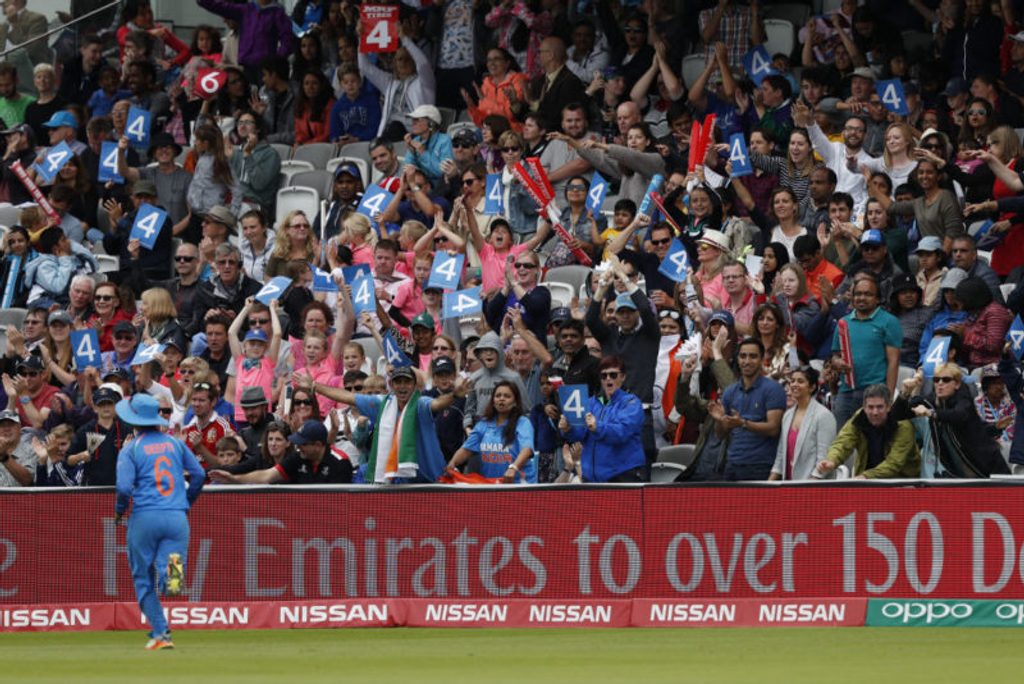
Reacting to the announcement that the eight base venues for the new T20 competition set to begin in 2020 will be the most-established Test match grounds, Jonathan Liew argues that the ECB are widening the gulf between the wealthiest and the rest in county cricket, while disenfranchising swathes of loyal supporters in the process.
Read Jonathan Liew in Wisden Cricket Monthly every month
Last summer Tom Harrison, the ECB chief executive, attended the Women’s World Cup final at Lord’s, and was startled by the spectacle that greeted him. Long queues for the ladies’ toilets. Bars virtually deserted, while coffee sales were going through the roof. A novel, almost discomfitingly salubrious atmosphere. As Harrison left the ground, he realised he had just glimpsed a blueprint of the future.
“What it gave me,” he later said, “was a sense that we can really nail this new T20 challenge, if we’re prepared to do things differently. Market it completely differently. To completely different audiences. In completely different places.”
 The new crowd who enjoyed the Women’s World Cup inspired the ECB’s chief executive
The new crowd who enjoyed the Women’s World Cup inspired the ECB’s chief executive
Last month, the ECB announced the eight base venues for their new T20 franchise competition: Lord’s, The Oval, Edgbaston, Trent Bridge, Old Trafford, Headingley, Cardiff and the Ageas Bowl. Introducing English cricket’s brave new frontier: taking the game to completely different places, by keeping it in exactly the same places.
Not that there was a great deal of surprise at the decision. Desperate for the new competition to start turning a profit as soon as possible, the ECB simply turned to their eight biggest grounds in an attempt to maximise gate receipts. The real question is what all this means for the domestic game as a whole, and for its clearest faultline: between those counties with Test match grounds, and those without.
When selling their vision, the ECB emphasised that any future windfall from the new T20 league would be dispersed equitably throughout the game. Counties would be offered an annual sweetener of £1.3 million each: the rising tide that would lift all boats. Every move they have made since, however, looks like an attempt to unpick that policy.
During the winter, for example, the ECB quietly rejigged the financial model to allow host venues to keep a portion of ticket sales, on top of food and drink profits and their staging fee. Over the initial five-year term, this will be worth millions in extra revenue to the larger counties, at the same time that the smaller counties are essentially having one of their main income streams slowly strangled.
Ah, the poor, unloved Blast. Albeit, not poor in the sense that it doesn’t make money, or unloved in the sense that it struggles to find an audience, for it does both. And yet, from 2020 it will be shoved out of the prime summer-holiday period, slashed by four games per team, shorn of publicity, and essentially be reduced to a sort of feeder league to the new tournament. It takes a certain creativity to kneecap your own most successful competition and call it progress.
Meanwhile, whole swathes of the country are being cropped from the picture. A young spectator living in, say, Gateshead – just half an hour on the bus from Durham – will have to travel almost 100 miles south to watch the new competition, arriving in Leeds only after a journey comprising multiple stages and several hours, by which point they will have been declared missing, a manhunt launched, airports closed, tearful parents holding a press conference appealing for anyone with information to come forward.
It takes a certain creativity to kneecap your own most successful competition and call it progress
Of course, there’s vanishingly little evidence that significant numbers of fans are prepared to travel those sorts of distances. And while that’s fine in a place like Australia – the ECB’s T20 Arcadia – where 63 per cent of the population lives in one of the six Big Bash cities, it’s not quite as sensible an idea here, where the proportion living in one of the seven new franchise cities is just 32 per cent.
Throw in the fact that from 2020, half of all Test matches in this country will take place in London, and the stage is being prepared for the violent polarisation of the domestic game. Test match counties have already begun to take up residence in Division One of the Championship. Earlier this month it emerged that host venues would receive £500,000 in compensation for every year they missed out on a Test. It was a move that forced the resignation of former Somerset chairman Andy Nash from the ECB board, and in his departure letter Nash painted a bleak picture of a county game in which the eight Test match grounds were “first among equals”.
For all the division and rancour generated by the new competition, it also offered a golden opportunity. To build bridges. Spread the growth. Close the gulf between the wealthiest and the rest. Instead, an unapologetically regressive ECB have chosen at the first opportunity to entrench and exacerbate it. There are still two years to go, of course. But even at this early stage, the ECB have left us in no doubt about their intended direction of travel.








